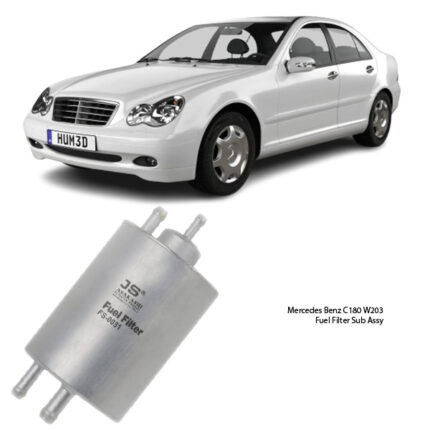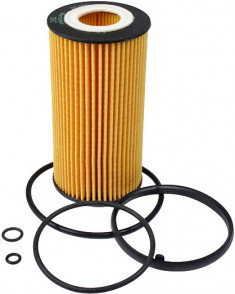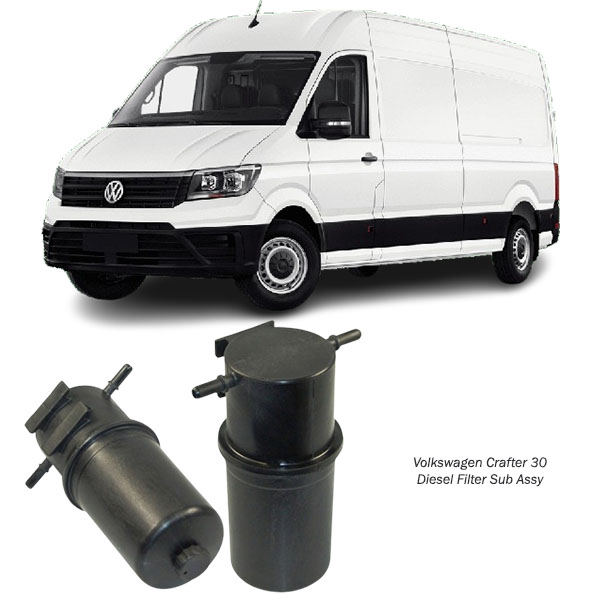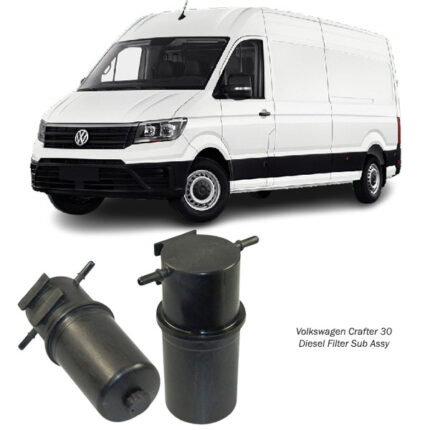Get Volkswagen Crafter 30 Diesel Filter Sub Assy FS1024 in Kenya
The diesel filter sub-assembly is a vital component of a diesel engine’s fuel system, designed to ensure clean and efficient fuel delivery. By filtering out impurities and contaminants from diesel fuel, it protects the engine, enhances performance, and prolongs the lifespan of critical components. This guide provides an in-depth explanation of its structure, function, benefits, maintenance, and troubleshooting.
What is a Diesel Filter Sub-Assembly?
The diesel filter sub-assembly is an integrated unit within the fuel system that houses the diesel fuel filter, often accompanied by additional components like a water separator and sensor mechanisms. Its primary purpose is to filter diesel fuel before it reaches the fuel injectors, ensuring contaminants such as dirt, rust, and water do not damage the engine or affect performance.
Components of the Diesel Filter Sub-Assembly
- Diesel Fuel Filter
- The core filtering element made from materials like pleated paper or synthetic fibers, designed to trap fine particles.
- Water Separator
- Removes water from the fuel, as water can cause corrosion, injector damage, and poor combustion.
- Housing Unit
- Encloses the filter and facilitates connections with the fuel system.
- Drain Plug or Valve
- Allows for the manual removal of water and contaminants accumulated in the housing.
- Pressure Sensors
- Detect clogs or blockages and trigger warning lights on the dashboard.
- Heating Element (Optional)
- Found in cold-weather models to prevent fuel gelling or freezing.
Functions of the Diesel Filter Sub-Assembly
- Fuel Filtration
- Removes contaminants such as dirt, rust, and particles to ensure clean fuel delivery to the engine.
- Water Separation
- Eliminates water from diesel fuel, preventing corrosion and injector damage.
- Maintains Fuel System Integrity
- Protects components like fuel pumps and injectors from wear caused by contaminants.
- Improves Combustion Efficiency
- Delivers clean fuel for optimal combustion, enhancing engine performance.
- Monitors Fuel Quality
- Sensors and water separators ensure that only high-quality fuel reaches the engine.
Types of Diesel Fuel Filters
- Primary Filters
- Installed between the fuel tank and the secondary filter, handling larger particles and impurities.
- Secondary Filters
- Installed closer to the engine, providing finer filtration to ensure fuel injectors receive ultra-clean fuel.
- Spin-On Filters
- Disposable filters enclosed in metal casings for easy replacement.
- Cartridge Filters
- Replaceable filter elements housed in reusable enclosures.
- Inline Filters
- Compact filters placed directly in the fuel line.
Signs of a Failing Diesel Filter Sub-Assembly
- Reduced Engine Power
- Contaminants restrict fuel flow, causing the engine to lose power.
- Difficulty Starting the Engine
- Clogged filters prevent adequate fuel delivery, making it hard to start the vehicle.
- Poor Fuel Efficiency
- A dirty filter can disrupt fuel combustion, leading to increased consumption.
- Rough Idling
- Insufficient fuel flow can cause uneven engine operation during idling.
- Unusual Noises
- Whining or sputtering sounds may indicate fuel flow restrictions caused by a clogged filter.
- Check Engine Light
- Modern vehicles with sensors may display warnings when the fuel filter needs attention.
Benefits of a Properly Functioning Diesel Filter Sub-Assembly
- Prolonged Engine Life
- Protects critical components like injectors and fuel pumps from damage caused by contaminants.
- Enhanced Performance
- Delivers clean, efficient fuel for optimal engine power and responsiveness.
- Improved Fuel Economy
- Reduces waste by ensuring efficient combustion.
- Lower Emissions
- Clean fuel combustion minimizes harmful exhaust emissions.
- Reduced Maintenance Costs
- Prevents costly repairs by protecting the fuel system from premature wear.
Maintenance of the Diesel Filter Sub-Assembly
- Regular Inspection
- Periodically check the filter for signs of dirt, clogging, or damage.
- Drain Water Separator
- If equipped, use the drain plug to remove accumulated water and contaminants.
- Replace as Recommended
- Follow the manufacturer’s guidelines for filter replacement intervals, typically every 15,000 to 30,000 miles.
- Use High-Quality Fuel
- Purchase diesel from reputable suppliers to minimize contaminants.
- Monitor for Warning Signs
- Address performance issues promptly to avoid damage to the filter or engine.
Replacement of the Diesel Filter Sub-Assembly
Steps for Replacement
- Locate the Filter
- Identify the diesel filter sub-assembly, typically found along the fuel line or near the engine.
- Relieve Fuel Pressure
- Turn off the engine and relieve pressure in the fuel system to prevent spills.
- Drain Residual Fuel
- Use the drain valve to remove any remaining fuel or water in the housing.
- Remove the Old Filter
- Detach the housing and carefully remove the filter element.
- Inspect and Clean Housing
- Check for debris or damage and clean the housing before installing the new filter.
- Install the New Filter
- Insert the new filter element and reassemble the housing, ensuring a secure fit.
- Prime the Fuel System
- Prime the system to remove air and ensure proper fuel flow.
- Test for Leaks
- Start the engine and inspect for fuel leaks around the assembly.
Common Issues and Troubleshooting
- Clogged Filter
- Restricts fuel flow, causing engine performance issues.
- Solution: Replace the filter promptly.
- Water Accumulation
- Causes corrosion and poor combustion.
- Solution: Drain the water separator regularly.
- Air Leaks
- Improper installation may allow air into the fuel line, causing engine stalling.
- Solution: Check seals and connections during installation.
- Low-Quality Filters
- Inferior filters may fail prematurely or allow contaminants through.
- Solution: Use OEM or high-quality aftermarket filters.
Advancements in Diesel Filter Technology
- High-Efficiency Filters
- Designed to capture smaller particles for superior filtration.
- Integrated Water Sensors
- Detect water contamination and alert drivers in real time.
- Self-Cleaning Filters
- Some advanced systems use self-cleaning mechanisms to extend filter life.
- Eco-Friendly Designs
- Biodegradable or recyclable materials reduce environmental impact.
- Smart Monitoring
- Digital systems track filter performance and maintenance schedules.
Environmental Impact and Disposal
Used diesel filters must be disposed of responsibly. They often contain fuel residues and trapped contaminants that can harm the environment. Check local regulations for proper disposal or recycling options for automotive parts.
Conclusion
The diesel filter sub-assembly is a cornerstone of a diesel engine’s reliability and efficiency. By removing impurities and ensuring clean fuel delivery, it protects the engine, improves performance, and reduces emissions. Regular maintenance and timely replacement are essential to ensure optimal functionality. Investing in a high-quality diesel filter sub-assembly is a small but impactful step toward better fuel efficiency, reduced costs, and a longer-lasting engine.
Follow us on Facebook For more parts.




